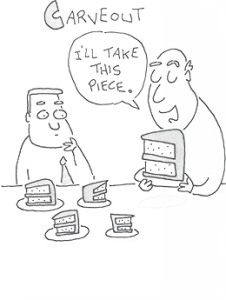The determination that an individual debtor is not entitled to be freed from responsibility for one or more of its prepetition claims; the denial of a debtor of the injunctive relief it seeks, via the Code’s discharge provisions, when that debtor files for bankruptcy. In certain cases, even if an individual debtor receives a discharge, certain types of debts are not dischargeable, a few examples being when the debtor obtained money or property by false pretenses or fraud, when the debtor owes money for inflicting willful and malicious injury on another or another’s property, or when the debtor is obligated for domestic support. In some Chapter 7 cases, a debtor may not be entitled to a discharge of any of its debts, for instance if the debtor knowingly and fraudulently made a false oath or account in a case, if the debtor has refused to obey a lawful order of the court, or if the debtor has already received a discharge within the eight-year period preceding the date of the filing of the petition in the case. Debtors that are not individuals are not entitled to discharge in Chapter 7 cases.
Bankruptcy Code §§ 523, 524, 727.

